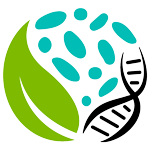Characterization of Transposable Elements in the Ectomycorrhizal Fungus Laccaria bicolor
Jessy Labbé, Claude Murat, Emmanuelle Morin, Gerald A. Tuskan, Franoçois Le Tacon, and Francis Martin
03 August 2012, PLoS ONE 7(8): e40197; doi: 10.1371/journal.pone.0040197
Abstract
Background: The publicly available Laccaria bicolor genome sequence has provided a considerable genomic resource allowing systematic identification of transposable elements (TEs) in this symbiotic ectomycorrhizal fungus. Using a TE-specific annotation pipeline we have characterized and analyzed TEs in the L. bicolor S238N-H82 genome.
Methodology/Principal Findings: TEs occupy 24% of the 60 Mb L. bicolor genome and represent 25,787 full-length and partial copy elements distributed within 171 families. The most abundant elements were the Copia-like. TEs are not randomly distributed across the genome, but are tightly nested or clustered. The majority of TEs exhibits signs of ancient transposition except some intact copies of terminal inverted repeats (TIRS), long terminal repeats (LTRs) and a large retrotransposon derivative (LARD) element. There were three main periods of TE expansion in L. bicolor: the first from 57 to 10 Mya, the second from 5 to 1 Mya and the most recent from 0.5 Mya ago until now. LTR retrotransposons are closely related to retrotransposons found in another basidiomycete, Coprinopsis cinerea.
Conclusions: This analysis 1) represents an initial characterization of TEs in the L. bicolor genome, 2) contributes to improve genome annotation and a greater understanding of the role TEs played in genome organization and evolution and 3) provides a valuable resource for future research on the genome evolution within the Laccaria genus.
Citation
Labbe´ J, Murat C, Morin E, Tuskan GA, Le Tacon F, et al. (2012) Characterization of Transposable Elements in the Ectomycorrhizal Fungus Laccaria bicolor. PLoS ONE 7(8): e40197. doi:10.1371/journal.pone.0040197

